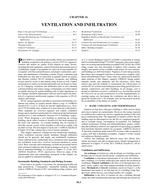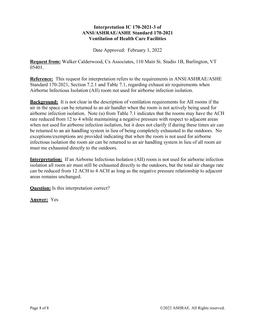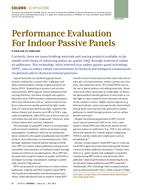For applications such as supermarkets, which typically have a high latent load and high ventilation rates, desiccant hybrid systems provide both temperature and humidity control in a costeffective manner. These swstems use both electricity and gas as energy sources for multiple cooling techniques that share the total sensible and latent load. Typical desiccant hybrid systems integrate several subsystems including a desiccant (solid or liquid) system for control of latent load (humidity), a cooling tower to provide evaporative cooling and heat transfer the ambient, a ventilation system for air distribution and mixing, and a conventional vapor compression chiller to provide sensible cooling. In applications where the latent loads are relatively smaller than supermarkets, the advantages of desiccant hybrid systems are not so obvious. Conventionally cooled buildings encounter periods each year when relative humidity cannot be maintained in the comfort zone without significantly oversizing the equipment, employing expensive reheat, and/or circulating excessive amounts of ventilation air. An advanced liquid desiccant hybrid system is described in this paper that will provide fullseason humidity Control and also provide life-cycle cost reduction by using gas-driven chilling systems.
Citation: Symposium, ASHRAE Transactions, 1988, vol. 94, pt. 1, Dallas, TX
Product Details
- Published:
- 1988
- Number of Pages:
- 12
- File Size:
- 1 file , 900 KB
- Product Code(s):
- D-DA-88-01-4


